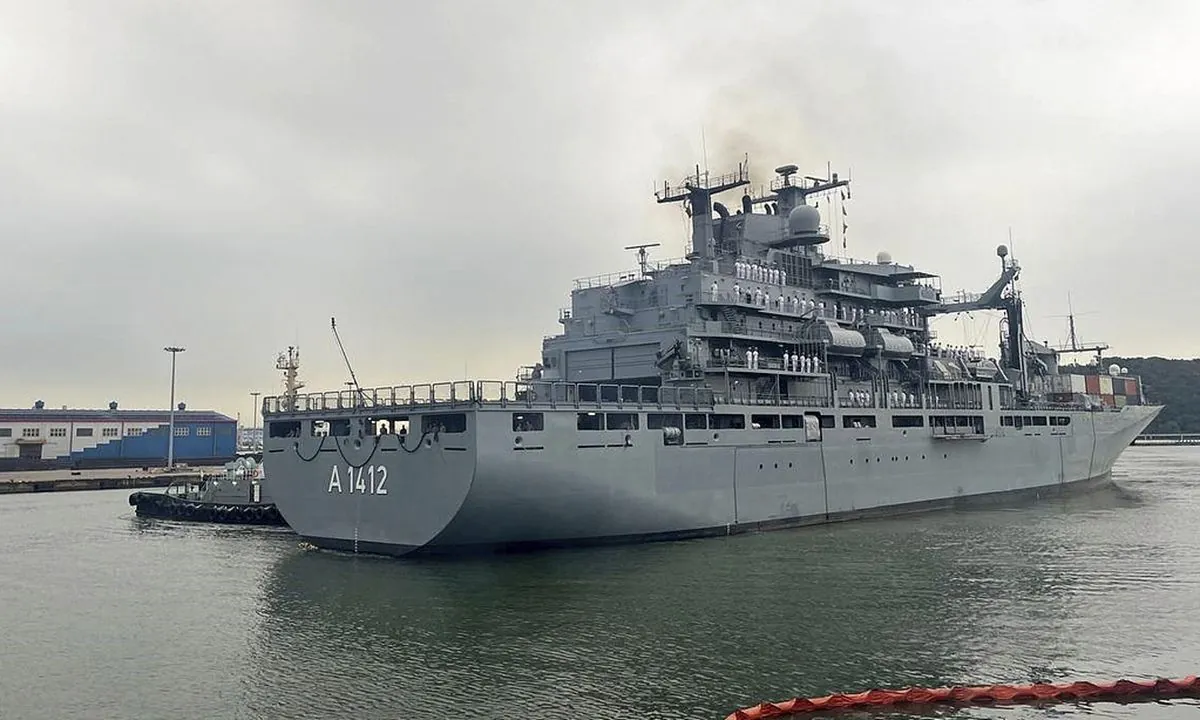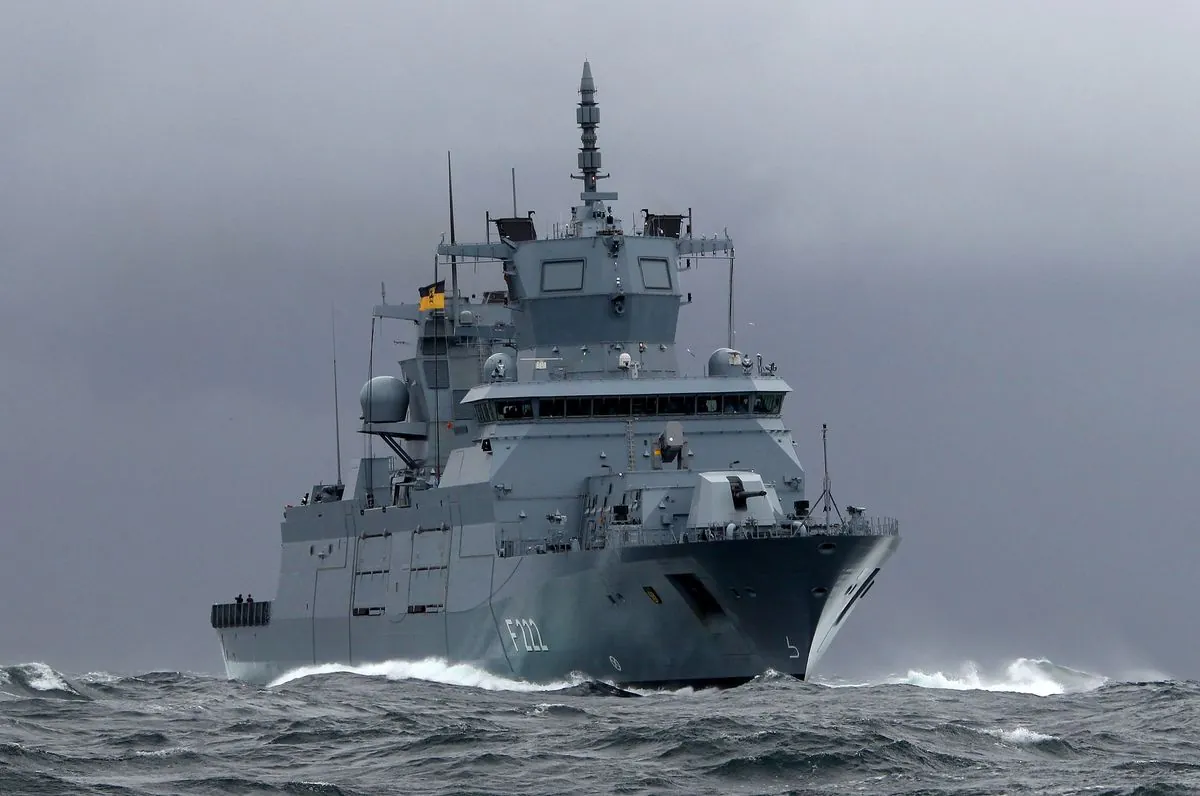German Navy Ships Transit Taiwan Strait, Signaling Support for Allies
Two German naval vessels navigated the Taiwan Strait, marking the first such passage in two decades. This move underscores Germany's commitment to international maritime norms amid regional tensions.

In a significant maritime maneuver, two German naval vessels traversed the Taiwan Strait on September 13, 2024, marking the first such passage by German ships in approximately 20 years. This transit underscores Germany's commitment to upholding international maritime norms and supporting its Western allies amidst ongoing tensions between Taiwan and China.
The German Defense Minister, Boris Pistorius, confirmed the passage of the frigate "Baden-Württemberg" and the supply ship Frankfurt am Main through the strait. Pistorius stated, "International waters are international waters. It's the shortest and, given the weather conditions, the safest route. So we are passing through."

The Taiwan Strait, a 180-kilometer-wide waterway separating Taiwan from mainland China, has been a focal point of military tensions since the 1950s. It serves as a crucial shipping route, with approximately 240 vessels traversing it daily. The strait's strategic importance is further highlighted by its role in the "first island chain" strategy in Western Pacific geopolitics.
Taiwan's Defense Ministry reported monitoring the German ships' southward journey through the strait, describing the situation as "normal." This transit occurs against a backdrop of increased Chinese military activities around Taiwan over the past five years, including war games and other demonstrations of force.
The passage of the German ships has drawn criticism from China, which claims sovereignty over the strait. A Chinese foreign ministry spokesperson stated, "We firmly oppose provocations and endangering of China's sovereignty and security under the banner of 'freedom of navigation'."
However, both the United States and Taiwan maintain that the strait is an international waterway. This view is supported by the fact that about half of global container ships pass through this route. The German Foreign Ministry emphasized that under international maritime law, no notification is required for navigation through international waters.
"International waters are international waters. It's the shortest and, given the weather conditions, the safest route. So we are passing through."
This transit by German naval vessels is seen as a clear statement of Berlin's stance on upholding international rules. It aligns with similar actions by other Western allies, such as the United States, which conducts transits through the strait approximately every two months, as well as occasional passages by Canadian and British ships.
The German Navy, known as the Deutsche Marine, was founded in 1956 and has since participated in various international maritime operations as a NATO member. The frigate "Baden-Württemberg," one of the vessels involved in this transit, is among the most modern ships in the German fleet.
This naval maneuver occurs within the complex geopolitical context of the region, where the United States maintains a policy of strategic ambiguity regarding the Taiwan Strait. The Taiwan Relations Act of 1979 commits the US to assist Taiwan in its defense, further complicating the delicate balance of power in the area.
As tensions persist, the principle of "freedom of navigation," a cornerstone of customary international law, continues to be a point of contention in the Taiwan Strait. This recent German transit serves as a reminder of the ongoing challenges in maintaining open sea lanes and upholding international maritime norms in this strategically vital region.


































